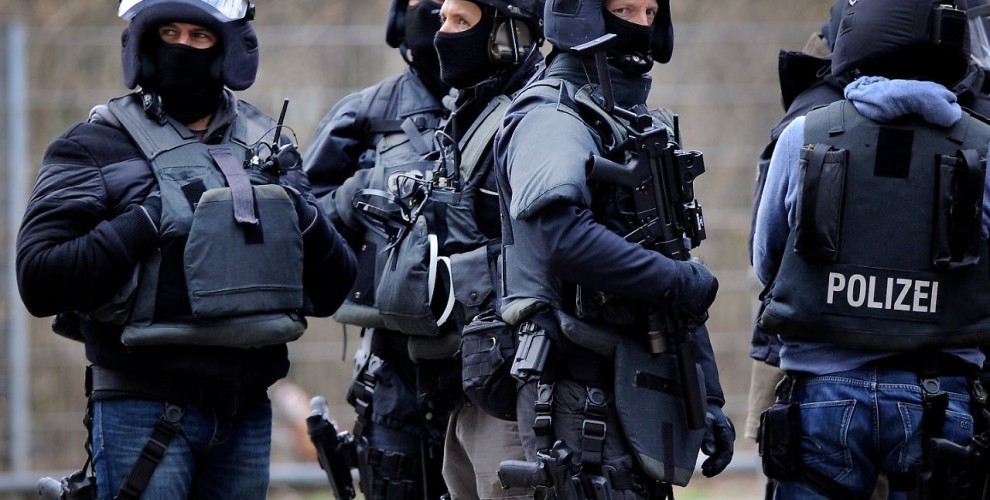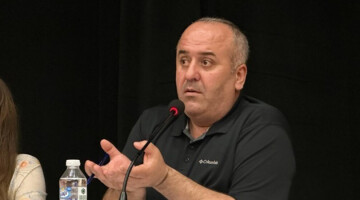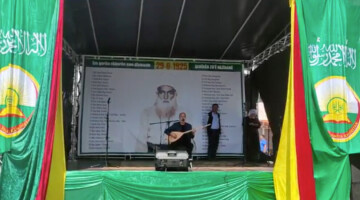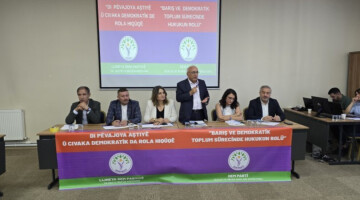An operation was carried out against al-Nusra gang members in Lower Saxony, Schleswig-Holstein and Hamburg states of Germany Monday morning. German special operations units raided some houses and detained four Syrian citizens by the names of Mustafa K., Abdullah K., Sultan K. and Ahmed K.
The operation was conducted on basis of an inviestigation opened by Federal Prosecutor Frauke Köhler in Karlsruhe on May 30th, 2017 against the four people in question for “membership to foreign terrorist organization Jabhad Al-Nusra”.
The Federal Prosecutor's Office stated that the four al-Nusra members, who are reported to be brothers, engaged in the attacks and massacre in Serêkaniyê city of Rojava in November 2012.
According to the Federal Prosecutor's Office, Mustafa K. and Sultan K. committed the crime of displacing the residents of Serêkaniyê, while the other two engaged in attacks northeast of Serêkaniyê and fighting with YPG forces. Ahmed K., with other al-Nusra members near him, is reported to have driven with his Pickup vehicle through the city and forced the inhabitants to leave their homes.
The four al-Nusra members will be referred tomorrow to the Federal Court of Justice that will decide on the execution of the investigation.
Federal prosecutor Frauke Köhler running the investigation left ANF's question “When and how did these people come to Germany?” unanswered. Köhler's press secretary stated that no more information will be provided on the investigation due to confidentiality.
WHAT HAD HAPPENED IN SERÊKANİYÊ?
On October 8th, 2012 a group of gang members crossed through Serêkaniye border gate from Northern Kurdistan side and launched a wave of attacks and massacre in the region. As clashes intensified in November 2012, residents of the city started resistance against the attacks of the gangs. The resistance of YPG fighters and local people with light weapons continued for months.
On January 16th, 2013 gang groups 'Tabûrên El-Farûq, Ehrar Xwêran, Xwurebai El-Şam ve Ehfad El-Rewsûl’ affiliated to Newaf El-Beşîr that is supported by the Turkish state and has members living in Turkey, attacked the civilian houses over the Hesekê road. YPG forces retaliated against the attacks and protected the civilians.
The resistance mounted by YPG and local people lasted for 15 days, after which YPG fighters got close to the railway route. A ceasefire signed between YPG and gang groups on January 31st 2013 remained in effect for one month.
Renewed fighting erupted between YPG and ISIS/Al-Nusra gangs on July 16th 2013. Following clashes, YPG fighters cleared the city and the border gate of the gangs.













